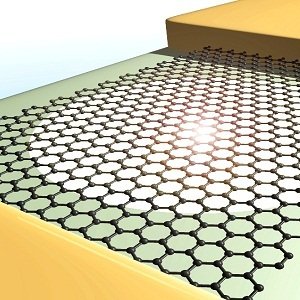The EU is to provide funding for the major GRAPHENE project, with UAB and ICN participation

29/01/2013
The inicial phase of the project GRAPHENE will have a budget of 54 million Euros among the 74 partners from 17 European countries. The Universitat Autònoma de Barcelona (UAB) is one of the 3 catalan partners that will take part in the project, together with the Institut Català de Nanotecnologia (ICN) and the Institut Català de Ciències Fotòniques (ICFO). Spain will participate with a total number of 12 partners in this project. Besides, about 20 or 30 new partners will be selected and are expected to enter after the first year.
The UAB research group is conducted by the principal investigator Professor David Jiménez, an experienced researcher of the Electronic Engineering Department from UAB Engineering School (Escola d’Enginyeria). Dr. Jiménez will conduct a research group of ten UAB researchers working on GRAPHENE and exploring future innovative applications. The research group from UAB and the group conducted by Dr. Stephan Roche at ICN are collaborating in several nanotechnology projects. GRAPHENE is headed by Professor Jari Kinaret, of the Chalmers University of Technology in Sweden.
The researchers will search for new applications for graphene, a two-dimensional, ultra-thin crystal obtained by atomic and molecular-scale manipulation of matter. Among its main qualities are its hardness - it is the hardest material ever known-, its high electrical conductivity - it is a better conductor than copper - and the fact that it can be produced in extremely thin sheets. It is expected to be used to make faster and lighter electronic and optical devices, in flexible electronics and more advanced batteries. Using graphene, new devices can be made, such as electronic paper, mobile phones that are ultra-thin and flexible, or lighter and more efficient aircraft. In the longer term, graphene is expected to open up new paradigms in computation and usher in new medical applications such as artificial retinas.
Along with HBP-PS (The Human Brain Project), this project has been picked by a panel of experts including top-ranking scientists, professors, Nobel Prize winners and industry representatives. The winning projects will be funded over 10 years, each one receiving 1,000 million euros. This funding will be shared equally between the European Commission, industry and the member states.